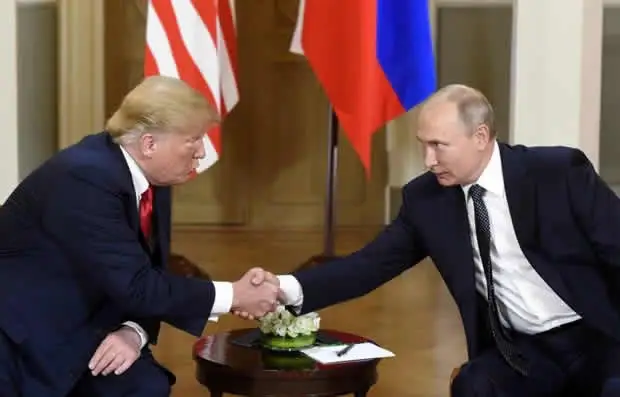Russian President Vladimir Putin has extended his congratulations to U.S. President-elect Donald Trump on his inauguration, expressing cautious optimism for improved relations between Moscow and Washington.
During a rare televised meeting of Russia’s Security Council on Monday, Putin highlighted the importance of open dialogue on key global issues, including the conflict in Ukraine and nuclear arms control, according to Reuters.
“We see the statements by the newly elected president of the United States and members of his team about the desire to restore direct contacts with Russia,” Putin said. He also praised Trump’s commitment to avoiding global conflict, adding, “We also hear his statement about the need to do everything possible to prevent World War Three. We, of course, welcome this attitude and congratulate the elected president of the United States of America on taking office.”
These remarks reflect a sense of guarded hope within the Kremlin that Trump’s presidency could lead to a thaw in U.S.-Russia relations, which have been strained to their lowest point since the Cuban Missile Crisis in 1962. However, Russian officials acknowledge that these expectations could face challenges due to the complexities of U.S. policy.
Turning to the ongoing conflict in Ukraine, Putin stressed the need for lasting peace rather than temporary ceasefires.
“The goal should not be a brief ceasefire, not some kind of period of respite that would allow a regrouping and rearmament of forces, but a long-term peace based on respect for the legitimate interests of all people and all peoples who live in the region,” Putin stated.
While Putin expressed readiness for dialogue, his insistence on Russia’s territorial claims, which are rejected by Ukraine and its allies, remains a significant obstacle. Trump, who has vowed to quickly end the conflict, has not yet outlined a concrete plan for achieving this without undermining U.S. and allied positions.
Putin also addressed the importance of nuclear arms control, signaling Moscow’s willingness to discuss extending the New Strategic Arms Reduction Treaty (New START), which is set to expire in 2026. The treaty is currently the last remaining agreement regulating nuclear arsenals between the two largest nuclear powers.
As Trump’s inauguration ceremony unfolded, marking the start of a presidency that has generated both anticipation and uncertainty, the prospect of renewed U.S.-Russia dialogue remains a critical question for the global geopolitical landscape.




